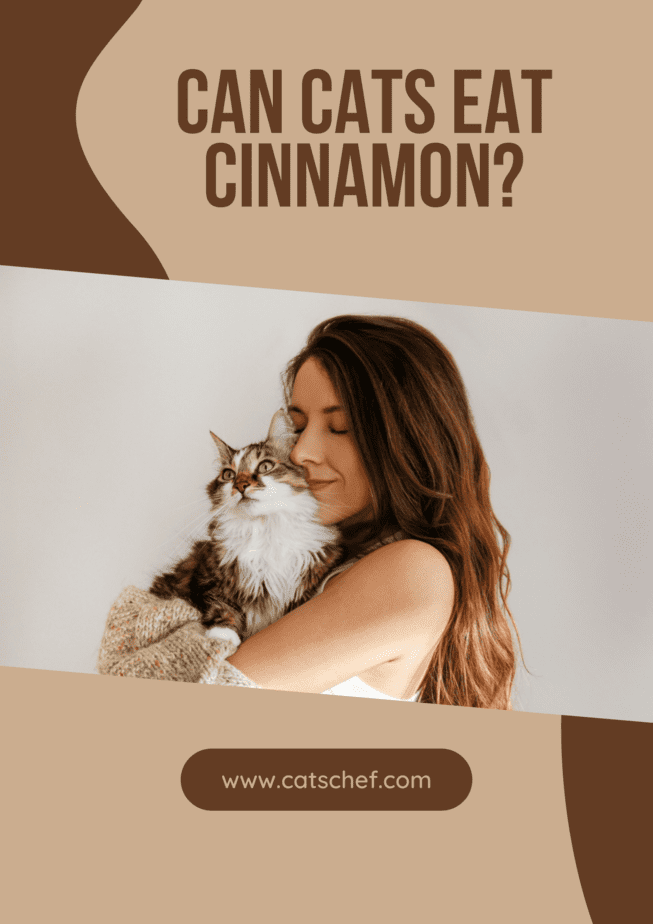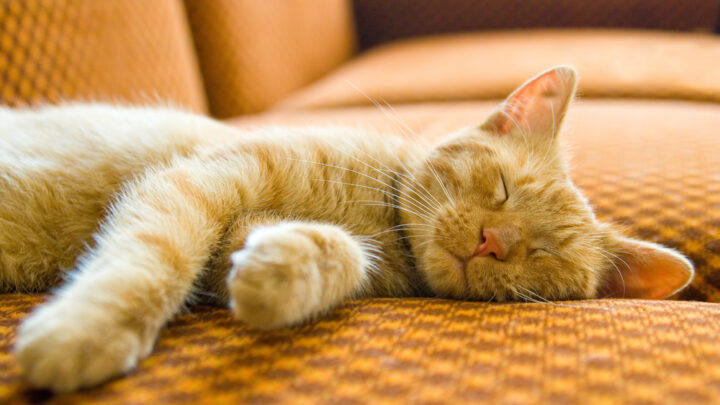Has your curious creature ever snooped around the kitchen looking for something to munch on? Has she ever given you a heart attack because she casually walked past you chewing on something and you had no idea what it was? And has she ever made you wonder “can cats eat cinnamon?”
You’re not the only one! Pet parents around the world spend hours and hours of their day looking up different foods and checking whether they’re likely to send their precious pets running to the litter box. “Can cats eat cinnamon rolls? And what about cinnamon toast crunch?”
Well, you came to the right place. Whether your furry friend licked the cinnamon you spilled while you were making your breakfast oats or she munched on a cinnamon stick while you weren’t looking, we’re here to help you answer any question you might have.
Can cats eat cinnamon? Can cinnamon compounds harm your cat? According to our friends over at the ASPCA (American Society for the Prevention of Cruelty to Animals), cinnamon isn’t toxic to cats and shouldn’t cause any adverse reactions when consumed moderately.
But, before you and your furry friend put your celebratory hats on… There are a couple of things you should know. Cinnamon isn’t toxic to cats. But, your cat shouldn’t consume large amounts of cinnamon (or even small amounts of cinnamon) for numerous reasons. Let’s start from the beginning!
So, can cats eat cinnamon?

Cats can eat cinnamon, but… There’s always a but when it comes to feeding your cat anything that isn’t supposed to be a regular part of her diet. Cats are carnivores which means they require meat, animal protein, and animal-sourced nutrients in their diet.
Your cat’s digestive system isn’t equipped to break down and process a lot of the foods that are typically labeled as “human foods.” You might enjoy an occasional cinnamon roll. But, she might have a hard time dealing with cinnamon, sugar, and other ingredients that aren’t a natural part of her diet.
So, what are we referring to when we’re talking about cinnamon? Cinnamon is pretty much the bark of the cinnamon tree that comes from the Cinnamomum family. Cinnamon sticks, cinnamon essential oils, cinnamon powder, cinnamon diffusers, and sprays are only some of the ways in which humans typically use this succulent spice.
And let me tell you, cinnamon is popular among humans for a reason! It’s packed with vitamins, minerals, and antioxidants. It’s known to have anti-inflammatory properties, reduce blood sugar levels and cholesterol levels, and help with a bunch of other health problems… For humans.
To your four-legged friend’s disappointment, cinnamon doesn’t have the same effect on cats. Quite on the contrary, cinnamon contains something known as coumarin which can lead to allergic reactions and cinnamon toxicities.
You might want to consult with your vet before adding cinnamon to your cat’s diet. And before you get a green light from your vet, take a look at a couple of things that make cinnamon a pretty cumbersome cat treat.
What makes cinnamon bad for cats?
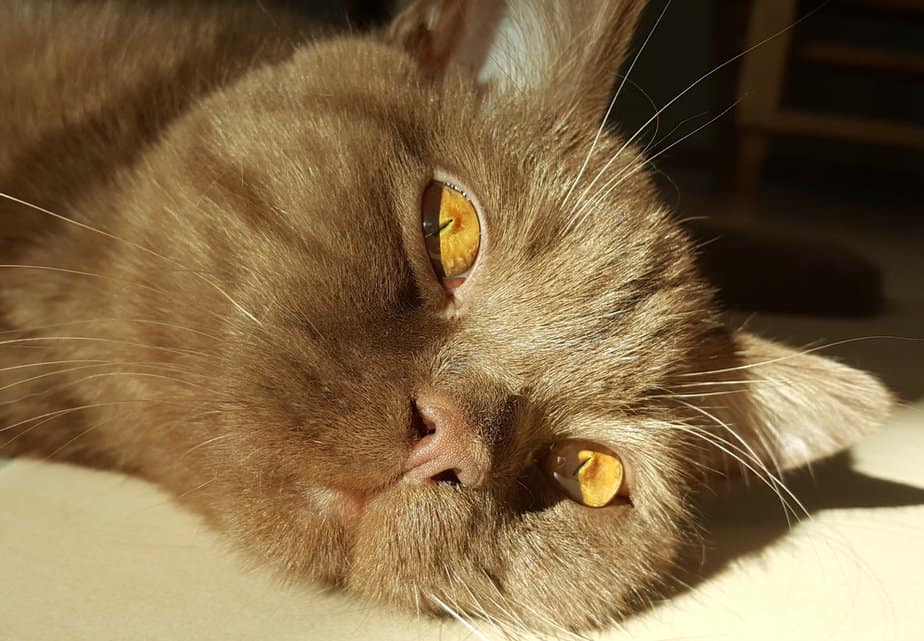
A better question would be “what doesn’t make cinnamon bad for cats!?” This succulent spice seems to be one of the worst things your cat can get in contact with. Not only can it lead to various digestive issues, but it can also result in an allergic reaction or cinnamon poisoning.
You might want to keep an eye out for some of the most common signs and symptoms of these caddish conditions. Trust me, you’re better off staying on the safe side of things.
1. Cinnamon toxicity
Regardless of the type of cinnamon, consuming large amounts can leave your cat with serious symptoms of cinnamon toxicity.
You might be confused as to why we mentioned that “cinnamon isn’t toxic to cats” when it can lead to such adverse reactions. Let’s say your furry friend decides to sneak a nibble of your cinnamon roll. There’s pretty much no reason to believe such a small amount would cause a problem.
But, when she decides to scoff down every single cinnamon rolls she finds in the kitchen (and ignore her perfectly plated cat food), she’s bound to experience some serious repercussions. She can consume less than a teaspoon of powdered cinnamon before she starts feeling the side effects.
As mentioned in one of the previous paragraphs, cinnamon contains something called coumarin. Your cat’s digestive system doesn’t contain the necessary enzymes to digest coumarin. So, consuming cinnamon results in liver damage, liver disease, and even liver failure.
Obviously, there are ways in which you can recognize cinnamon toxicity before it turns into something more serious. Look for some of the following symptoms including vomiting, diarrhea, coughing, wheezing, and shortness of breath.
Still wondering “can cats eat cinnamon?” This might not be the answer you’ve been hoping for, but it’s the answer that might help save your furry friend’s life.
2. Cinnamon allergies
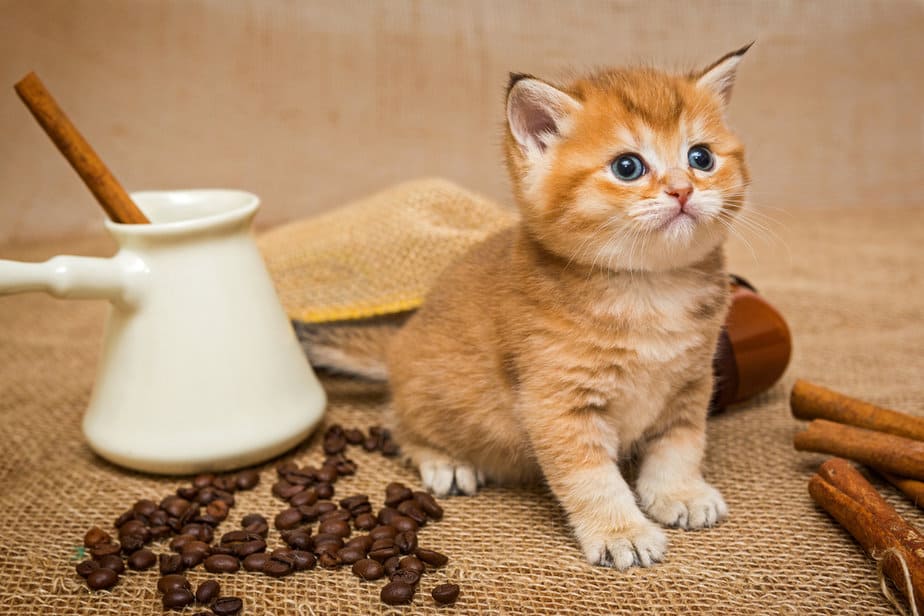
Believe it or not, cinnamon allergies can be pretty common in the feline world.
Your feline friend can get in contact with this succulent spice when she’s roaming around the kitchen, sniffing everything that comes her way, or even munching and nibbling on anything she can find. Danger follows her everywhere she goes!
That’s why it’s incredibly important to consult with your vet before you make any significant changes in her diet (or even in her environment). He should be able to tell you whether your feline friend has any allergies you should be aware of.
And, if she does… You might want to rethink putting that spice rack within the reach of her pesky paws. Some of the most common symptoms of cinnamon allergies are rashes and irritations, sneezing, difficulty breathing, change in heart rate, and change in blood pressure.
It goes without saying that you should contact your vet as soon as you notice any of these symptoms. Allergic reactions in cats don’t have a history of causing any lasting harm. But, they can result in severe organ damage and organ failure when they aren’t addressed in time.
What are the most common causes of cinnamon toxicity and cinnamon allergy?
Your feline friend can pretty much get in trouble with cinnamon everywhere she goes! Whether she ingests it, inhales it, or even gets it on her fur, she’s at risk of experiencing symptoms of cinnamon toxicity or cinnamon allergies.
You can’t really find high concentrations of coumarin in powdered cinnamon (which happens to be the most popular type among humans). But, you never know what kind of shenanigans your furry friend might be up to this time. It’s better to be safe than sorry when it comes to your cat’s health.
So, if you notice any of the following symptoms contact your vet and follow his advice to a tee. He should be able to provide your cat with proper medication and supportive care. She should be as good as new as soon as she gets the spice out of her system.
1. When she ingests cinnamon
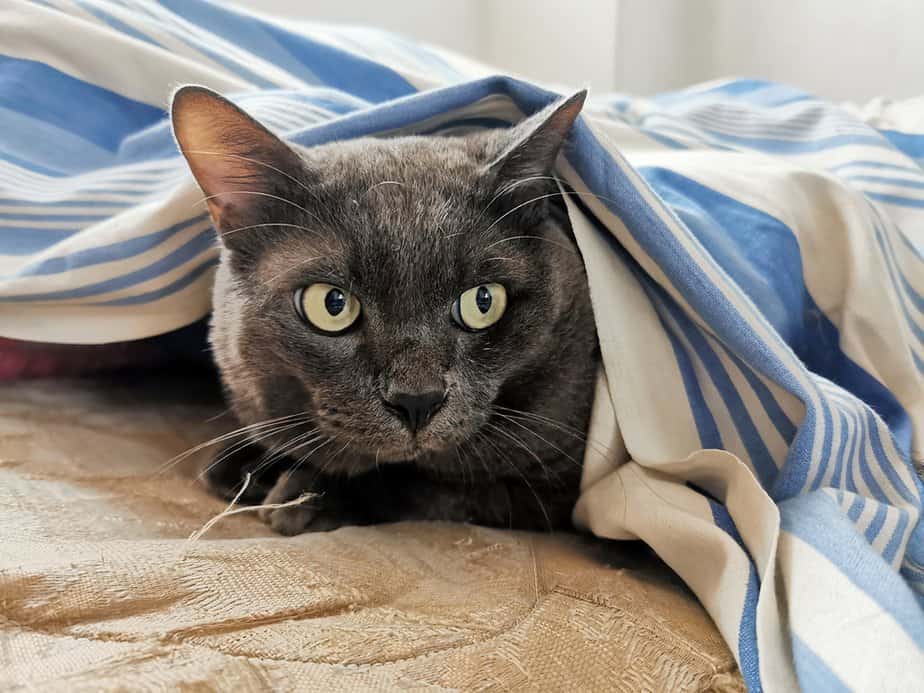
This is pretty much the most common cause of cinnamon toxicity. Let’s be honest, cinnamon isn’t the only spice you have lying around your kitchen.
While there’s nothing wrong with that, you might be one of those pet owners that forgot to babyproof (or better said, catproof) their kitchen. What’s stopping your furbaby from storming into the room and scoffing down everything she can get her paws on?
So, it doesn’t come as a surprise that most cats experience symptoms of cinnamon toxicity after ingesting excessive amounts of cinnamon. Some of the symptoms we’re talking bout are diarrhea, vomiting, coughing, breathlessness, and liver failure (due to a lack of necessary liver enzymes).
Needless to say, next time you’re asking yourself “can cats have cinnamon” try to remember what happens when they do have cinnamon. There’s no reason why you should ever feed your cat anything that contains cinnamon knowing the repercussions she might face.
2. When she inhales cinnamon
You might be thinking to yourself “how can cats even inhale cinnamon when they pretty much hate the smell”, and you’re making a pretty good point. Believe it or not, the smell of cinnamon isn’t something your feline friend likes to smell when she wakes up in the morning.
Cat haters (otherwise known as people who don’t like it when cats mark their territory on the new sofa or break the vase that was a present from their late grandma) tend to put this succulent spice into a spray bottle and use it as a cat repellent.
Pepper, curry, and cinnamon have a strong aroma that’s intense enough to ward off cats. With that in mind, it’s pretty uncommon for most cats to experience signs of cinnamon toxicity after they inhale a bunch of cinnamon. Stranger things have happened, so…
Some of the most common symptoms to keep an eye out for when your cat accidentally inhales some cinnamon are sneezing, wheezing, coughing, breathlessness, and other respiratory problems. You already know the drill, if you notice any of them contact your vet immediately.
3. When she gets cinnamon on her skin or fur
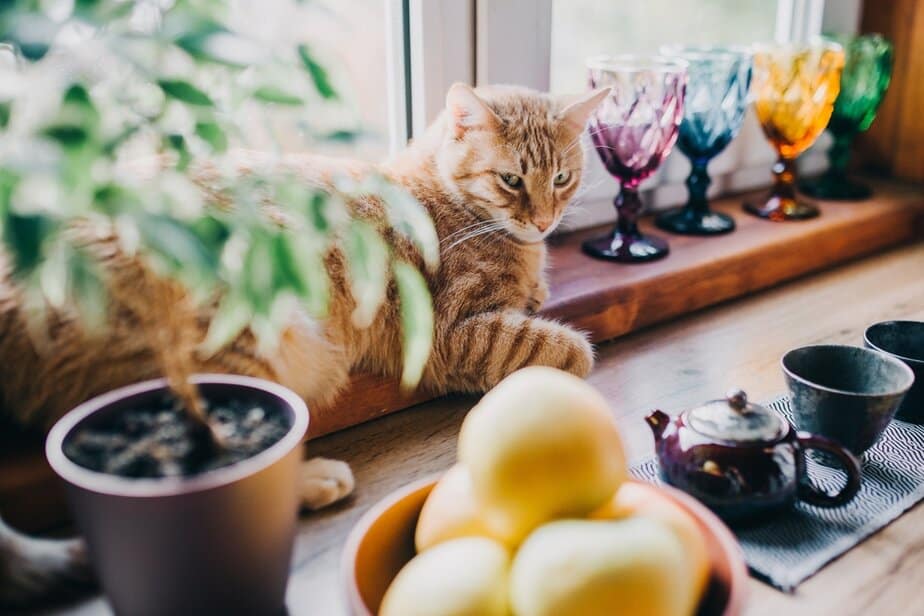
Last but not least, your furry friend can also experience signs of cinnamon toxicity if she gets some cinnamon on her skin or fur. Maybe she’s got sensitive skin, she’s already experienced an allergic reaction to cinnamon, or she’s gotten cinnamon essential oil on her skin.
Either way, you might notice signs of itching, irritations, and redness, as well as obsessive pawing and scratching. You might be surprised to learn that cinnamon can have such an effect on your cat’s skin. But, don’t forget that certain types of cinnamon do contain high levels of coumarin.
Cinnamon essential oil happens to be the worst type of cinnamon you can keep within your cat’s reach. This essential oil couldn’t be more concentrated and certainly couldn’t be more dangerous to your cat’s health. She’s much better off playing with thyme!
Can cats eat cinnamon rolls?
You might have already guessed it, but… Cats can’t eat cinnamon rolls. Not only do these tasty treats contain cinnamon which isn’t that great for your cat, but they also contain sugar, flour, yeast, and even raisins.
None of those ingredients belong to your cat’s regular diet. They aren’t necessarily toxic (except for raisins). But, they are pretty harmful in terms of leading to numerous digestive issues such as upset stomach, vomiting, and diarrhea.
Consuming cinnamon rolls on a regular can leave your feline friend with a bunch of gastrointestinal problems, weight gain, obesity, and even feline diabetes.
You might think it’s adorable how she struggles to chew through all that dough. But, her digestive system doesn’t recognize cinnamon rolls as something she should be eating. Trust me, there are better ways to deal with her “mommy please” look.
Actually, cats can’t even taste sweet things! Your cat is only interested in cinnamon rolls because she sees you devour them in two bites. She’s a curious creature, but that doesn’t mean that you should share everything you eat with her.
Can cats eat cinnamon toast crunch?
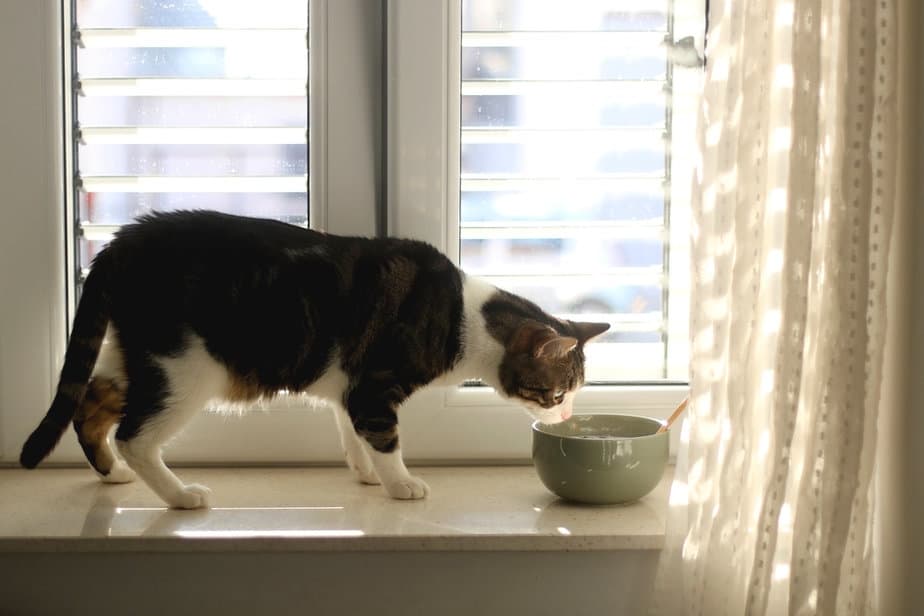
Cinnamon toast crunch is one of the most popular brands of breakfast cereal in the world. You have a couple of boxes in every corner of your kitchen and you eat them every single morning… All the while your furry friend meows and begs you to let her have a taste.
Unfortunately, you have to find a way to resist her meows of desperation because cats can’t eat cinnamon toast crunch. These mouth-watering morsels contain a bunch of cinnamon (hence the name), but they also contain sugar, artificial sweeteners, and preservatives.
Trust me, you don’t want any of those things in your cat’s tummy. Sugar might not be toxic to cats unless it’s consumed in excessive amounts, but some artificial sweeteners and preservatives might cause some serious damage to your cat’s health.
And don’t even get me started on milk… Cats are lactose intolerant and their digestive system isn’t equipped to break down the lactose in milk. What does that mean for your cat? Well, if she scoffs down your bowl of cereal she’s bound to experience stomach aches, vomiting, and diarrhea.
Let’s just say that “sharing isn’t always caring.” Keep that bowl of cinnamon toast crunch to yourself and feed your furry friend with something a bit more fitting.
Cats can eat cinnamon, but…
That doesn’t mean they should. Cinnamon doesn’t come without a bunch of repercussions, “proceed with caution” warnings, and a long list of terms and conditions. There’s pretty much no reason why you should feed cinnamon to your cat.
She might be a big fan of cinnamon rolls and cinnamon toast crunch. But, there are better alternatives available on the market that won’t send her running to the litter box. And won’t cause adverse reactions or lasting damage to her health. Do with that what you will!
